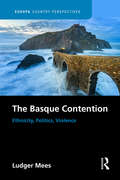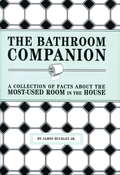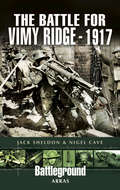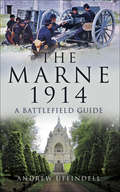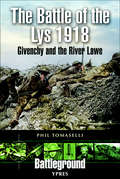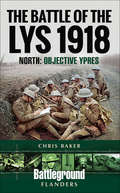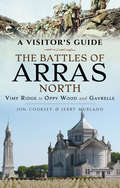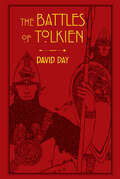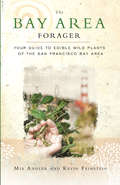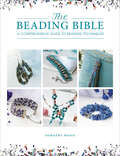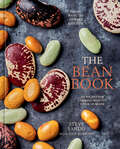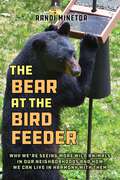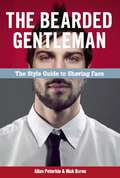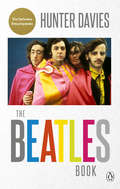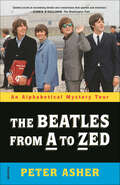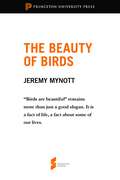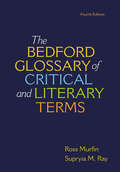- Table View
- List View
The Basque Contention: Ethnicity, Politics, Violence (Europa Country Perspectives)
by Ludger MeesTo the outside world, for some half a century, the words ‘Basque Country’ have provoked an almost instant association with the Euskadi Ta Askatasuna (ETA, Basque Homeland and Liberty) separatist group and violent conflict. The Basque Contention: Ethnicity, Politics, Violence attempts to undo this simplistic correlation and, for the first time, provide a definitive history of the wider political issues at the heart of the Basque Country. Drawing on three decades of research on Basque nationalism, Ludger Mees weaves together the various historical and contemporary strands of this contention: from the late medieval kingdoms of Spain and France and the first articulations of a Basque ethno-particularism, to the dissolution of ETA in 2018, and all manner of dictatorships, conflict, peace, civil war, political intrigue, hope and failure in-between. For anyone who has ever wanted to gain an insight into the Basque Country beyond the headlines of ETA and grasp the complexity of its relationship with Spain, France and indeed itself, this volume provides a detailed, yet digestible, basis for such an understanding.
The Bathroom Companion
by James BuckleyIt's the most used room in the house--but how much do you know about it? Here's the first book about the bathroom written exclusively for the bathroom! Set it on the back of the tank and learn something new on every visit--amazing facts and figures from history, science, pop-culture, and more. Don't let you time in the bathroom be a waste!
The Battle for Cotentin Peninsula: 9–19 June 1944
by Georges BernageIn June 1944, the Americans left the Sainte-Mre-Eglise and Utah Beach bridgehead and crossed the Merderet river to the Chausse de la Fiere, taking Picauville on 10 June. Their advance was slowed following the failure of the 90th Infantry Division, but they were able to take Pont-l'Abbe on 12 June and Saint-Sauveur-le-Vicomte 16 June. Two days later they cut the Cotentin peninsula at Barneville, before heading north towards Cherbourg.As well as authentic eyewitness testimony, the book also acts as a field guide, including maps and both contemporary and modern photographs.
The Battle for Isurava: Fighting in the clouds of the Owen Stanley 1942
by David W. CameronWithin 24 hours of the Japanese invasion of northern New Guinea at Gona in July 1942, the Australian militiamen of &‘B&’ Company, 39th Battalion, spent four weeks fighting a delaying action against a crack Japanese force outnumbered by three to one. By mid-August, the rest of the battalion had arrived, and these men took up a position at Isurava, in the heart of the cloud covered mountains and jungles of the Owen Stanley Range. At Isurava, this small militia force of the 39th Battalion now numbering around 300 men was determined to make a stand against a crack Japanese force of the 144th Regiment and supporting elements, numbering at least 1500. Then on the day the Japanese launched their attack, to the great relief of these militiamen, reinforcements from the 2nd AIF who had fought with great distinction in the Middle East began to arrive in the afternoon having spent days struggling up the track from Port Moresby. Even so, the Australians were still outnumbered, as the Japanese also received reinforcements, and unlike the Japanese, the Australians had no supporting artillery or medium machineguns. The battle for Isurava would be the defining battle of the Kokoda Campaign and has rightfully been described as Australia&’s Thermopylae. It was here that Australia&’s first Victoria Cross in the Pacific war was awarded when the Japanese conducted several ferocious attacks against the Australian perimetre. Private Bruce Kingsbury led an Australian counterattack, rushing forward sweeping the Japanese positions with his Bren gun, saving he situation when all seemed lost — he was killed leading the charge. Another two men were also nominated for the VC during the fighting at Isurava. The outnumbered and poorly equipped Australians managed to hold back the Japanese advance for almost a week; only then did these battle scared and weary men begin a month long fighting withdraw towards Ioribaiwa Ridge just north of Port Morsby. However, their sacrifice provided time for the Australian 25th Brigade to be brought forward — finally forcing the Japanese to withdrawal just as they glimpsed the lights of Port Morseby.
The Battle for Normandy, 1944: (WW2 #9) (The Ladybird Expert Series #15)
by James HollandBOOK 9 OF THE LADYBIRD EXPERT HISTORY OF THE SECOND WORLD WAR, FROM AWARD-WINNING HISTORIAN JAMES HOLLANDFeaturing stunning illustrations from Keith Burns, bringing the story to life in vivid detailWhy did the Allies attack on D-Day?How did the Allies pick Normandy as a target?What was Operation Overload, the second front against the Nazis?JUNE 6 1944D-Day was a deciding conflict in World War II. But the invasion was not a straightforward attack.From feeding Nazi spies false information on the attack, to developing new technology like the Mulberry harbours, D-Day changed the course of the War for good.THE LARGEST SEABORNE INVASION IN HISTORYWritten by historian, author and broadcaster James Holland, The Battle for Normandy is an essential introduction to the naval invasion that began the liberation of Western Europe from the Nazis.__________Discover the full Ladybird Expert WW2 series:BlitzkriegThe Battle of BritainBattle of the AtlanticThe Desert WarThe Eastern FrontThe Pacific WarThe Bomber WarThe War in ItalyThe Battle for NormandyThe War in BurmaVictory in EuropeVictory Against Japan
The Battle for Vimy Ridge, 1917 (Battleground Arras Ser.)
by Nigel Cave Jack SheldonIn a new departure in the Battleground Europe series, this book is a guide to both sides of a major battle in this case to the Canadian Corps operations against 1st Bavarian Reserve Corps at Vimy from 9 12 April 1917, which formed part of the opening of the British offensive, known as the Battle of Arras. Historically, the capture of Vimy Ridge was an event far more significant than its undoubted military importance alone. Here for the first time all four divisions of the Canadian Corps were deployed in line together in one offensive; and although the Corps went to fight even greater battles, Vimy marked a key point in the emergence of Canada as a fully sovereign nation.Although the Canadian side of the story has been well chronicled by a number of writers, until now there has been little concerning the defense during this great battle. Now, the accounts of the German soldiers and their commanders are combined with those of the Canadians and British deployed on the other side of No Mans Land and not simply those who fought above ground, but tunnelers also.
The Battle of Marne, 1914: A Battlefield Guide
by Andrew UffindellA traveler’s guide to the history and sites of the World War I battle in the Marne River valley in France.The First Battle of the Marne was one of the most pivotal battles in history. Fought outside Paris in September 1914, it turned the tide of the German invasion of France and robbed Kaiser Wilhelm II of his best chance of winning the First World War.The battle began when the French and British armies launched a massive counter-offensive, and it ended—after five, tense days of fluctuating fortunes—in a German retreat. The so-called “miracle of the Marne” was among the most crucial episodes of the war, and yet no complete, in-depth guide to the battlefield has been available until now in English.Andrew Uffindell begins his guidebook with a gripping account of the battle, followed by a series of easy-to-follow tours of the battlefield. Each tour covers a particular sector in detail, using vivid eyewitness accounts to reveal what the fighting was like for the men in the front line.This unique and highly illustrated book enables readers to explore the battlefield and retrace the course of those dramatic events for themselves. It gives directions to dozens of museums, cemeteries, and monuments, including the memorials to the famous “taxis of the Marne.” It will be fascinating reading for anyone interested in the Great War, and an essential companion for visitors keen to see the actual terrain over which the battle was fought.
The Battle of the Lys, 1918: Givenchy and the River Law (Battleground I Ser.)
by Phil TomaselliThe battles fought at Estaires and Givenchy, just south of Ypres, in April 1918 were critical episodes in the larger Battle of Lys which determined the outcome of the ultimate German offensive on the Western Front. The massive assault of Ludendorffs armies crashed against defenses manned by the British and Portuguese. A series of intense attacks and counterattacks followed, and the Germans were on the verge of gaining the decisive breakthrough that both sides on the Western Front had struggled for since the onset of trench warfare in late 1914. A German success might well have forced the British to retreat from Ypres. Phil Tomasellis vivid account reconstructs events in the typical Battleground style. He describes the course of the fighting in close detail, using eyewitness accounts, official records, photographs and maps, and he provides walking and driving tours of the battlefield and of the monuments and cemeteries associated with it.
The Battle of the Lys, 1918: South: Objective Ypres
by Chris BakerThe second of two Battelground Europe titles covering this highly significant battle of spring 1918.The German offensive in Flanders in April 1918 came close to catastrophe for the British Armies, but ultimately ended in strategic defeat for the Kaisers men. Following close on the heels of the devastating Operation Michael attack in March, which had been aimed against the British front on the Somme and Arras, this offensive, Operation Georgette, was aimed at strangling the vital railways and roads that supplied the British at Ypres and threatening the vital logistics links with the Channel Ports.Having assembled an overwhelming numerical advantage, the Germans attacked in thick fog on 9 April 1918. By days end, the Germans had succeeded in gaining a crossing of the River Lys and were well on their way to the railway junctions at Hazebrouck. Next day, they extended the attacked front northwards and advanced to the very gates of Ypres, forcing a British retirement from the bloodily won advances during the Third Battle of Ypres. Messines Ridge, captured so spectacularly by the British in June 1917, was soon in German hands and fighting inched towards Mont Kemmel, which dominated the Ypres front. Once this fell, the way was open for the capture of the main supply roads into Ypres.To find sufficient reserves to counter the German attack, the British took the heart-breaking decision to abandon the ground won so dearly in the Passchendaele offensive in the summer and autumn of 1917. Gradually, fresher British and French reserves arrived and held their ground. With disappointing results, mounting casualties and a diminishing return for their efforts, the Germans paused to regroup. Late in the month they unleashed a rapid, unstoppable attack that captured Kemmel from the French forces that had been rushed north to reinforce the threatened line and which had been holding the summit: one of the finest military feats of the Great War.Behind the scenes, however, the Germans were already calling off a continuation of the offensive and so, by a seeming miracle, the bastion that was Ypres remained in British hands.What the British call The Battle of the Lys 1918 is a fascinating yet curiously neglected period of military history. Chris Baker examines this major battle from the strategic down to the platoon level, highlighting the key events, characters and acts of enormous bravery on both sides, both in historical narrative and in a series of tours of the area.This volume concentrates on the northern half of the battlefield; nearly all of the actions described in this volume took place in Belgium.
The Battles of Arras: Vimy Ridge to Oppy Wood and Gavrelle (A Visitor's Guide)
by Jon Cooksey Jerry MurlandThe First World War battlefields to the north of Arras – including Vimy Ridge – are among the most famous and most visited sites on the Western Front, rivaled only by those around Ypres and the Somme, and this clearly written, highly illustrated guide is the ideal introduction to them. Visitors can trace for themselves the course of each battle across the modern landscape and gain a fascinating insight into the nature of the fighting in the area – and the wider conflict across the Western Front – throughout the war. The book covers the key battles fought in the northern sector of the Arras front, including the 1917 Battle of Vimy Ridge and battles at Villers au Bois, Oppy Wood and Gavrelle. Expert guides Jon Cooksey and Jerry Murland have devised a series of routes that can be walked, biked or driven, explaining the fighting that occurred at each place in vivid detail. They record what happened, where it happened and why, and point out the sights that remain for the visitor to see. Their guidebook is essential reading for visitors who wish to enhance their understanding of the war on the Western Front.
The Battles of French Flanders: Neuve Chapelle, Aubers Ridge, Festubert, Loos and Fromelles
by Jon Cooksey Jerry MurlandThe battles fought by the British army in 1915, in the second year of the First World War, are less well known than those fought immediately after the outbreak of war in 1914 and those that followed in 1916 which culminated in the Battle of the Somme. But the fighting at Aubers Ridge, Festubert, Neuve Chapelle and Loos was just as severe as was the 1916 battle at Fromelles and the battlefields are just as interesting to explore today. This volume in the Battle Lines series is the perfect guide to them.Expert guides Jon Cooksey and Jerry Murland take visitors over a series of routes that can be walked, biked or driven, explaining the fighting that occurred at each place in vivid detail. They describe what happened, where it happened and why and who was involved, and point out the sights that remain for the visitor to see. Their highly illustrated guidebook is essential reading for visitors who wish to enhance their understanding of warfare on the Western Front.
The Battles of Newbury: Crossroads of the English Civil War
by Christopher L. ScottIn 1643 and again in 1644 the forces of King Charles I and Parliament clashed at Newbury in a bloody fight. Each time the fate of the country hung in the balance. Chris Scott retells the story of these two complex and exciting battles and provides a fascinating guided tour of the surviving battlefields.
The Battles of Tolkien (Tolkien Ser. #3)
by David DayThe defining battles from the history of Middle-earth are presented in a single, entertaining volume.The history of J. R. R. Tolkien's fictional world of Middle-earth is filled with epic battles in an ongoing struggle between good and evil. The Battles of Tolkien recounts many of the greatest conflicts over thousands of years, from the earliest skirmishes of the Valarian Ages to the defining battles in the War of the Ring. Insightful commentary by Tolkien scholar David Day discusses how the people, tactics, and weapons influenced the outcome of each battle, and also how the legends of Middle-earth relate to the real-world mythology on which Tolkien based his famous literary creation. Maps and full-color illustrations help bring this rich universe to life, making it an invaluable reference book for Tolkien fans of all ages. This work is unofficial and is not authorized by the Tolkien Estate or HarperCollins Publishers.
The Bay Area Forager: Your Guide to Edible Wild Plants of the San Francisco Bay Area
by Mia Andler Kevin FeinsteinReading this guidebook is like taking a wild foods walk with foraging experts Mia Andler and Kevin Feinstein: it gives practical advice for gathering edible wild plants in the Bay Area in a voice that is friendly and suffused with rich personal knowledge. The authors provide thorough descriptions of where to find each of the region's most readily available plants, and they give clear instructions for harvesting them responsibly. Large, detailed photographs help readers to identify plants easily. Also included are mouth-watering recipes such as cattail crêpes, cherry laurel cordial, fiddlehead fusilli, and rosehip soup. Ideal for any experience level, The Bay Area Forager invites readers to deepen their relationship with their environment.
The Beading Bible: A Comprehensive Guide to Beading Techniques
by Dorothy WoodThe Beading Bible: An indispensable guide to beads and beading techniques, presenting essential beading know-how together with a wide range of inspirational projects, tips and ideas. Beads are the oldest and most widespread art form, having been used in virtually every culture since ancient times. Over the years new materials and methods of making beads have been introduced and now bead workers have a vast array of stunning beads to work with. Beading has also developed over the years and, even though many traditional techniques are still popular, the craft is constantly evolving. With so many techniques, and such a vast array of beads and materials available for the contemporary beader, there is definitely a need for a comprehensive guide. The Beading Bible is just that – an encyclopaedia of beads and beading techniques that aims to educate and inspire anyone who loves working with beads. The Beading Bible begins by looking at beads themselves; how to choose beads from metal, modelled, gemstone, seed beads and cylinder beads to hex beads, crystals, glass and bugle beads. There are handy tables to help you to understand how beads are measured and bead quantities, as well as advice on choosing bead colours. You are then guided through the basic to more specialist tools and equipment that you will need in beadwork. You will find each beading technique explained in detail throughout the chapters. However, the book begins by giving you the basic knowledge of essential techniques, such as working from a chart and knotting. The book is divided into eight chapters that cover all the traditional techniques: bead loom weaving, off loom bead stitches, ropes and cords, fringing, netting and tassels, threading and stringing, wire work and jewellery techniques, bead embroidery and even knitting and crochet with beads. Within each chapter you are guided through the basic skills, tools and materials, before tackling more advanced techniques. Inspiration pages will give you interesting ideas using the different techniques, and there are over 30 fabulous projects, ranging from beautiful bags and jewellery to stylish scarves and accessories – perfect excuses for trying out your new skills! Easy-to-follow step-by-step instructions, clear diagrams and stunning photography combine to create the must-have resource for beaders of all abilities.
The Bean Book: 100 Recipes for Cooking with All Kinds of Beans, from the Rancho Gordo Kitchen [A Cookbook]
by Steve SandoFrom the founder of the acclaimed Rancho Gordo bean company, an authoritative guide to 50 bean varieties and how to cook with them, featuring 100 classic and modern recipes.&“The Bean Book is the magnum opus from the KING of heirloom beans!&”—Ted Allen, host of Food Network&’s Chopped &“An absolute must-have for anyone who believes that beans can be every bit as magical as a spoonful of caviar.&”—Chef José AndrésLearn how easy it is to cook beans from scratch with the king of beans. Rancho Gordo beans, the legumes with a cult following and Bean Club waiting list more than 20,000 names long, brought attention to heirloom bean varieties through chefs like Thomas Keller and Marcella Hazan.Founder and owner Steve Sando, with twenty-five years&’ experience in growing, sourcing, and cooking with beans, is the perfect home cook to present classic recipes as well as new combinations for all kinds of eaters. With more than 100 recipes, there are vegan and vegetarian dishes like Fennel, Potato, and White Bean Soup with Saffron and Pizza Beans as well as full-on meat-lovers&’ meals like Napa Valley Cassoulet, Southwestern Chile con Carne, and Clay-Baked Pacific Cod Gratin with Onions and White Beans.The Bean Book includes instructions for cooking beans using multiple methods, then transforming those cooked beans into satisfying dips, soups, salads, mains, sides, and desserts. There is nobody better than the man behind Rancho Gordo to share recipes, tips, and historical background in a beautifully photographed, comprehensive collection, sure to be a classic.
The Bear at the Bird Feeder: Why We're Seeing More Wild Animals in Our Neighborhoods and How We Can Live in Harmony with Them
by Randi MinetorBeyond the usual small rodents that have thrived in cities and suburbs for centuries, urban wildlife now includes larger animals that have adapted to live in areas dominated by human beings. Black bears, deer, coyotes, mountain lions, bobcats, moose, wild turkeys, Canada geese, bats, foxes, and raccoons have all found benefits to living in human neighborhoods. In states along the southeastern coasts, alligators have moved into creeks, rivers, ponds, and lakes in the midst of residential developments. This book is a guide to coexisting with growing populations of wild animals in our midst by addressing these questions and many more: What should you do if an animal wanders into your neighborhood, or brings its mate, children, or friends into your yard? How can you tell if a young wild animal needs help—and what steps should you take to try to save it? Is it right or wrong to put out food for deer, raccoons, foxes, or other wild animals? What should you do to secure your trash, grill, and other items in your own backyard, to keep from attracting bears and other wildlife? What should you do if you encounter a wild animal on a trail? Are the precautions different depending on the kind of animal (say, bear vs. mountain lion)?In this guide, Randi Minetor calls on naturalists, biologists, and state wildlife authorities to distill the best practices for creating a safe environment for humans and animals alike, and provides accounts of actual run-ins with wildlife as cautionary tales.
The Bearded Gentleman
by Allan Peterkin Nick BurnsFor centuries, men have been growing and styling their facial hair, whether for the sake of vanity, religion, or cultural considerations, but most of us don't give it a second thought. The Bearded Gentleman is an authoritative yet lighthearted guide that offers detailed information on some fifty specific facial hair styles: where they come from, how to grow them, and how to maintain them.Among them are many well-known styles, such as the Handlebar, the Fu Manchu, the Goatee, the Van Dyck, and the more recent Soul Patch. But there are also those that are less familiar, including the Horseshoe, the Lampshade, the Painter's Brush, the Landing Strip, the French Fork, and El Insecto (a.k.a. the Mighty). There's also practical advice on choosing a facial hair style that's right for you, as well as insight into how facial hair has figured in the history of masculinity, including its impact on politics, class, and sexuality.The Bearded Gentleman is an entertaining, witty, and useful guide to facial hair styles and the men who wear them.Allan Peterkin's previous books include One Thousand Beards: A Cultural History of Facial Hair, featured in Time, Esquire, and The New Yorker.Nick Burns is one of the leading writers on men's grooming; he has covered skin care, fashion, and health for publications including The New York Times, GQ, Details, and Out, and he is author of the popular men's style blog HommeGrooming.com.
The Beatles Book
by Hunter DaviesHunter Davies, the only ever authorised biographer of the group, has produced the essential Beatles guide. Divided into four sections – People, Songs, Places and Broadcast and Cinema – it covers all elements of the band’s history and vividly brings to live every influence that shaped them.Illustrated with material from Hunter's remarkable private collection of artefacts and memorabilia, this is the definitive Beatles treasure.
The Beatles Lyrics: The Stories Behind the Music, Including the Handwritten Drafts of More Than 100 Classic Beatles Songs
by Hunter DaviesThe definitive book of Beatles songs, shown as first written by their own hands and put into authoritative context, for the 50th anniversary of the Beatles coming to America.For the Beatles, writing songs was a process that could happen anytime -- songs we all know by heart often began as a scribble on the back of an envelope or on hotel stationery. These original documents have ended up scattered across the world at museums and universities and with collectors and friends. Many have never been published before. More than 100 songs and lyrics are reproduced in THE BEATLES LYRICS, providing Hunter Davies a unique platform to tell the story of the music.The intimacy of these reproductions -- there are sections crossed out and rewritten, and words tossed into the final recordings that were never written down -- ensures that THE BEATLES LYRICS will be a treasure for musicians, scholars, and fans everywhere.
The Beatles from A to Zed: An Alphabetical Mystery Tour
by Peter Asher“At last, I finally understand the alphabet! I also love this book: secret Beatles knowledge from one of the closest insiders.” —Steve MartinPeter Asher met the Beatles in the spring of 1963, the start of a lifelong association with the band and its members. He had a front-row seat as they elevated pop music into an art form, and he was present at the creation of some of the most iconic music of our times.Asher is also a talented musician in his own right, with a great ear for what was new and fresh. He was asked by Paul McCartney to help start Apple Records; the first artist Asher discovered and signed up was a young American singer-songwriter named James Taylor. Before long he would be not only managing and producing Taylor but also working with Linda Ronstadt, Neil Diamond, Robin Williams, Joni Mitchell, and Cher, among others.The Beatles from A to Zed grows out of his popular radio program “From Me to You” on SiriusXM’s The Beatles Channel, where he shares memories and insights about the Fab Four and their music. Here he weaves his reflections into a whimsical alphabetical journey that focuses not only on songs whose titles start with each letter, but also on recurrent themes in the Beatles’ music, the instruments they played, the innovations they pioneered, the artists who influenced them, the key people in their lives, and the cultural events of the time.Few can match Peter Asher for his fresh and personal perspective on the Beatles. And no one is a more congenial and entertaining guide to their music.
The Beauty of Birds: From Birdscapes: Birds in Our Imagination and Experience (Princeton Shorts #10)
by Jeremy MynottSpring returns and with it the birds. But it also brings throngs of birders who emerge, binoculars in hand, to catch a glimpse of a rare or previously unseen species or to simply lay eyes on a particularly fine specimen of a familiar type. In a delightful meditation that unexpectedly ranges from the Volga Delta to Central Park and from Charles Dickens's Hard Times to a 1940s London burlesque show, Jeremy Mynott ponders what makes birds so beautiful and alluring to so many people. Princeton Shorts are brief selections taken from influential Princeton University Press books and produced exclusively in ebook format. Providing unmatched insight into important contemporary issues or timeless passages from classic works of the past, Princeton Shorts enable you to be an instant expert in a world where information is everywhere but quality is at a premium.
The Bedford Glossary of Critical and Literary Terms
by Ross Murfin Supryia M. RayLike its highly praised and widely adopted predecessor, the second edition of The Bedford Glossary presents definitions of more than 700 literary and critical terms for today's student. The second edition features many additional terms, both traditional and recent, with a greater array of examples that make it an even more useful and informative reference than before.
The Bedford Guide for College Writers with Reader 11e (2-in-1)
by X. J. Kennedy Dorothy M. Kennedy Marcia F. MuthBoth reliable and innovative, The Bedford Guide for College Writers plunges students into active learning right from the beginning, whether their writing class meets on campus or online. This new edition expands active learning into reflection, helping students engage with their own writing process to gain a deeper understanding that will serve them throughout their writing lives. The Guide contains a process-oriented rhetoric, a thematic reader, a research manual, and a handbook, giving students everything they need for success in writing, all in one affordable book. Students are provided frequent opportunities to experiment and apply the skills presented, including Learning by Doing activities, Responding to an Image practices, and engaging assignments that all help students make important writing skills their own. The Bedford Guide helps students to be the confident, resourceful, and independent writers they will need to be. With an expanded Launchpad full of activities built to enhance the book's content online, reading comprehension quizzes, diagnostic quizzes and much more, the eleventh edition extends active learning online, offering students more opportunities to build deeper awareness of their own writing processes.
The Bedford Guide for College Writers with Reader, Research Manual, and Handbook 11e (4-in-1)
by X. J. Kennedy Dorothy M. Kennedy Marcia F. MuthBoth reliable and innovative, The Bedford Guide for College Writers plunges students into active learning right from the beginning, whether their writing class meets on campus or online. This new edition expands active learning into reflection, helping students engage with their own writing process to gain a deeper understanding that will serve them throughout their writing lives. The Guide contains a process-oriented rhetoric, a thematic reader, a research manual, and a handbook, giving students everything they need for success in writing, all in one affordable book. Students are provided frequent opportunities to experiment and apply the skills presented, including Learning by Doing activities, Responding to an Image practices, and engaging assignments that all help students make important writing skills their own. The Bedford Guide helps students to be the confident, resourceful, and independent writers they will need to be. With an expanded Launchpad full of activities built to enhance the book's content online, reading comprehension quizzes, diagnostic quizzes and much more, the eleventh edition extends active learning online, offering students more opportunities to build deeper awareness of their own writing processes.
